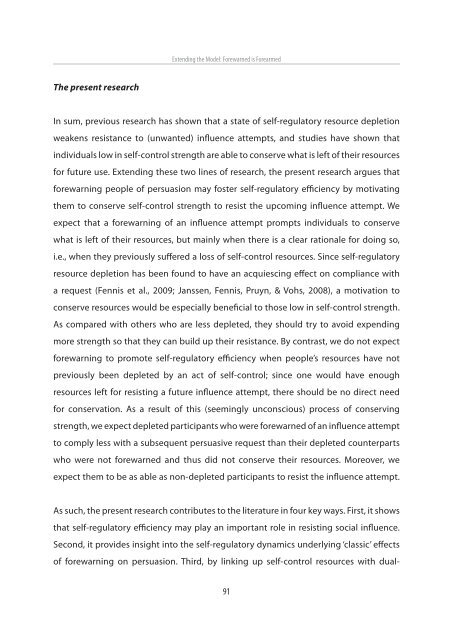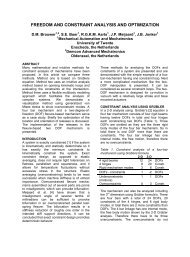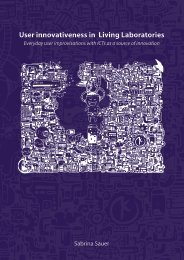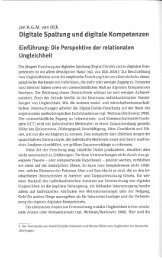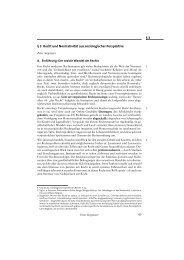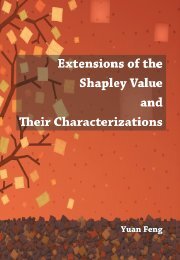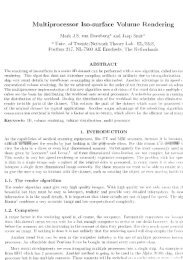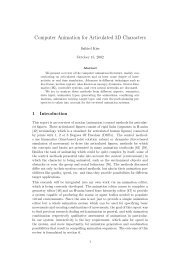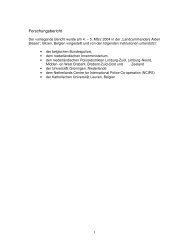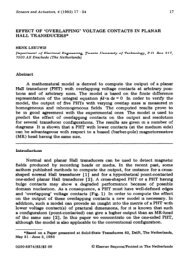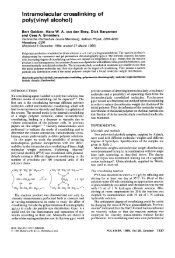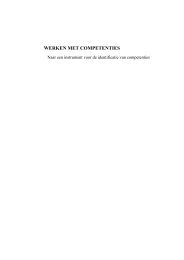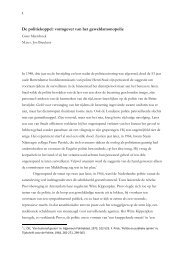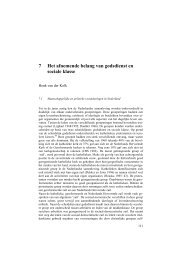Chapter 1 - Universiteit Twente
Chapter 1 - Universiteit Twente
Chapter 1 - Universiteit Twente
You also want an ePaper? Increase the reach of your titles
YUMPU automatically turns print PDFs into web optimized ePapers that Google loves.
The present research<br />
Extending the Model: Forewarned is Forearmed<br />
In sum, previous research has shown that a state of self-regulatory resource depletion<br />
weakens resistance to (unwanted) influence attempts, and studies have shown that<br />
individuals low in self-control strength are able to conserve what is left of their resources<br />
for future use. Extending these two lines of research, the present research argues that<br />
forewarning people of persuasion may foster self-regulatory efficiency by motivating<br />
them to conserve self-control strength to resist the upcoming influence attempt. We<br />
expect that a forewarning of an influence attempt prompts individuals to conserve<br />
what is left of their resources, but mainly when there is a clear rationale for doing so,<br />
i.e., when they previously suffered a loss of self-control resources. Since self-regulatory<br />
resource depletion has been found to have an acquiescing effect on compliance with<br />
a request (Fennis et al., 2009; Janssen, Fennis, Pruyn, & Vohs, 2008), a motivation to<br />
conserve resources would be especially beneficial to those low in self-control strength.<br />
As compared with others who are less depleted, they should try to avoid expending<br />
more strength so that they can build up their resistance. By contrast, we do not expect<br />
forewarning to promote self-regulatory efficiency when people’s resources have not<br />
previously been depleted by an act of self-control; since one would have enough<br />
resources left for resisting a future influence attempt, there should be no direct need<br />
for conservation. As a result of this (seemingly unconscious) process of conserving<br />
strength, we expect depleted participants who were forewarned of an influence attempt<br />
to comply less with a subsequent persuasive request than their depleted counterparts<br />
who were not forewarned and thus did not conserve their resources. Moreover, we<br />
expect them to be as able as non-depleted participants to resist the influence attempt.<br />
As such, the present research contributes to the literature in four key ways. First, it shows<br />
that self-regulatory efficiency may play an important role in resisting social influence.<br />
Second, it provides insight into the self-regulatory dynamics underlying ‘classic’ effects<br />
of forewarning on persuasion. Third, by linking up self-control resources with dual-<br />
91


